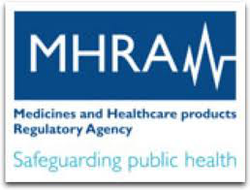A study commissioned by the British Regulatory of Healthcare related to a scandal such as PIP implants was published on May 14, 2012
http://www.thejournalofregulation.com/spip.php?article1451

In the United Kingdom, the Medicine and Healthcare Products Regulatory Agency, by noting the wrongdoing of the scandal of the Breast implants PIP and the clumsy way in which this type of scandal, alarming the population, had been resolved by health authorities, has commissioned a study in January 2012 to analyse this crisis and learn from it behavior lessons for similar crises. On May 14, 2012, the report was published. This report advised the regulator, when it is faced with this type of crisis, to expand its sources of medical information before making provisions, that it didn't do sufficiently. The regulator must also communicate as much as possible with the victims on the one hand (first circle) and the public (second circle) to give information, reassure and encourage good medical behavior.
© thejournalofregulation
In this case, there is the rational approach of the regulator, to try to take advantage for the future of an event which quickly overflowed its speed of action, because public opinion was panicked in particular because it lacked information and that the regulator itself was missing it.
This is why the regulator has requested a study, to provide an improved response in the event of crisis of this kind will take place: an unexpected event, on which information is missing (both on the past and future) and panicking the population. The case is sufficiently abstract so that the study of the concrete case be relevant.
Here, the study highlights a central idea: information. It does so in two ways. First, the information of the regulator himself. It should expand the sources of his information, including more doctors, not only internal to the Agency but also external to the Agency, which would give the opportunity to the regulator to understand more quickly. Second, the information of third parties. The first circle is that of the victims.
The issue is even more difficult than the regulator doesn’t really know the extent of this circle, because we did not know if all implants were defective or not, what percentage, etc. It was necessary to reassure, but not to fall asleep the first circle so that the persons potentially at risk could contact their doctors. The second cercle si the one of the general population and the public opinion, which have to be informed and need some reassurance.
A major role of the regulator, role is not related to the banking and financial sector, and which is to participate in the confidence of the population in the system, here the one of healthcare is here.

votre commentaire